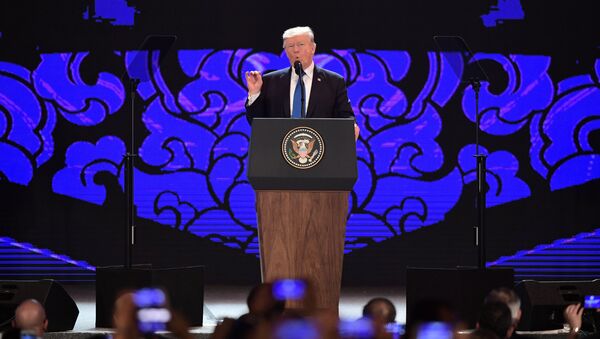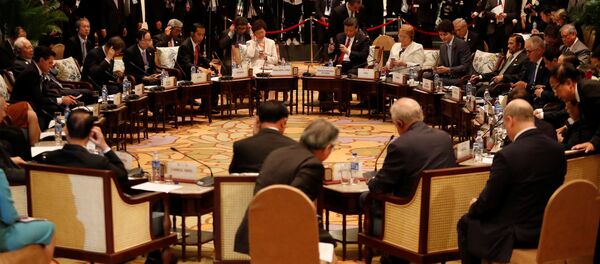Commenting on US President Donald Trump’s appearance at the APEC summit in Vietnam, Yun Sun, East Asia Program senior associate at the Stimson Center think tank in Washington, told Sputnik Radio that so far it appears that Donald Trump has displayed a "clear intention” to forge a cooperative relationship with China, and that while geopolitical differences between the two countries will always exist, these differences "might be a secondary consideration on President Trump’s agenda."
"He favors negotiations, he favors deals, and we know that when there are two parties involved in negotiations… it is easier for the United States to strike a better deal, compared to multilateral negotiations where you have to take into considerations other parties’ national interests. So when President Trump says he favors bilateral negotiations over multilateral negotiations it’s because he believes that bilateral negotiations will give him a better deal," the analyst said.
Yun Sun added that China has already demonstrated its willingness to cooperate with the US as evidenced by "multi-billion dollar business deals" signed between the two countries.
"Those (deals) are a clear signal that China is willing to act and offer what Trump desires the most from China, in order to get good US-China relations going. China signed, I believe, $250 billion worth of deals with the United States, and that’s a very clear signal: we are willing to go bilateral with the United States, but we’re not abandoning other multilateral trade negotiation tracks that China promotes on other fronts," she explained.
Trump’s visit to the APEC summit in Vietnam comes as part of his five-nation official trip to Asia.
During his speech at the summit, Trump stated that Washington does not intend to tolerate trade abuses and would insist on fair and equal policies.


